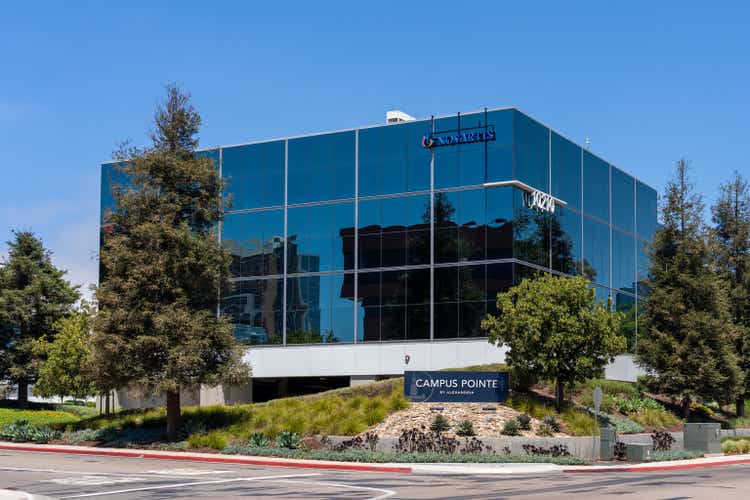JHVEPhoto
Novartis (NYSE:NVS) on Tuesday said its drug Kisqali plus endocrine therapy (ET) showed a statistically significant progression-free survival (PFS) benefit of one year compared to combination chemotherapy (CT) in patients with a type of aggressive breast cancer in a phase 2 trial.
PFS is the length of time during/after a treatment a patient lives with the disease without it getting worse.
The study, dubbed RIGHT Choice, evaluated Kisqali (ribociclib) plus ET against CT as a first-line therapy for pre- and perimenopausal patients with aggressive forms of hormone receptor-positive, human epidermal growth factor receptor-2 negative (HR+/HER2−) metastatic breast cancer (MBC) including patients with visceral crisis.
The Swiss pharma giant said Kisqali showed nearly one-year PFS benefit, supporting the superiority of Kisqali plus ET in this difficult-to-treat patient population.
Kisqali plus ET almost doubled the median PFS to 24 months, compared to to 12.3 months for combination CT in the first-line setting.
Median time to treatment failure with Kisqali plus ET was 18.6 months compared to 8.5 months with combination CT, according to the company.
In addition, patients on Kisqali combo reported lower rates of treatment-related serious adverse events (AEs) and lower rates of discontinuation due to treatment-related AEs, compared to patients in the combination CT group.
Novartis noted that RIGHT Choice is the first randomized study comparing a CDK4/6i plus ET versus combination CT in aggressive HR+/HER2− MBC.
“Kisqali is a unique CDK4/6 inhibitor with the most robust evidence demonstrating overall survival and quality of life benefits for a wide spectrum of patients, including those with aggressive disease,” said Jeff Legos, executive vice president, Global Head of Oncology and Hematology at Novartis.
Image and article originally from seekingalpha.com. Read the original article here.

